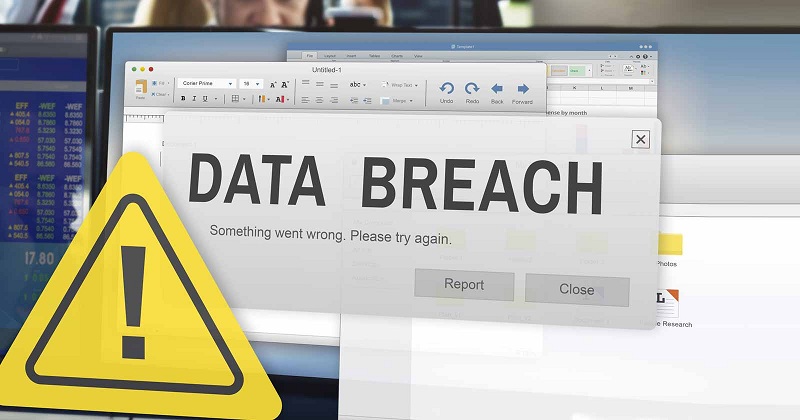Impact of Data Breaches: Is Your Digital Wallet at Risk?
Let’s cut to the chase. Your digital wallet might be in danger, and here’s why. Every time you tap to pay, you’re trusting your financial details to the digital world—but what happens when that trust is broken? The real-world impact of data breaches on digital payments can hit hard and fast, threatening not just your cash but also your personal data. Think of a data breach as a digital earthquake, shaking the very foundations of your online security. Still, there’s plenty you can do to firm up your defenses and keep your e-wallet safe. Stick with me, and we’ll walk through the risks and how to shield yourself against them. No panic, just practical steps to protect your pocket.
Understanding the Consequences of a Data Breach on E-commerce Security
The Ripple Effect of Financial Data Theft in Online Payment Systems
When data breaches hit, they hit hard, especially in online payment systems. Imagine a thief breaking into a bank. Now picture this theft in the digital world. That’s what happens with financial data theft – it’s a silent, swift attack on your digital wallet. Suddenly, your credit card info, maybe even your home address, are in the hands of someone who should not have them. These leaks can lead to credit card fraud, and that’s just the start.
Breaches shake our trust in digital wallets. Before you know it, that same trust spreads thin across the whole e-commerce scene. People start to doubt, question, and worry. Some back away from online buying, while others might leave a digital platform for good. Hackers don’t have to clear a bank account to cause chaos. Just the fear of it is enough.
Every digital payment comes with risks. The roads your money travels through the internet are open to attack. They’re like pipes that should only carry water. When they break, they spill, and the spill is your personal and financial data. If these pipes are not strong, or the locks on your digital funds are not tight, your money could be at risk.
Assessing the Vulnerability of Online Transaction Infrastructure
Think about what stands between a hacker and your money. There’s a whole network that claims to protect you. This includes the folks who make your apps, those who run payment gateways, and the banks themselves. They all play a part in keeping online transactions safe. But hackers are smart. They keep finding new ways in.
The safety of our digital cash lies in things like encryption, creating secret codes that shield our data. There’s also PCI DSS. This sounds complex, but it’s just a set of rules all companies follow to keep card info safe. These are there to avoid personal data exposure when you check out online.
Still, even with the best shields, breaches do happen. And it’s not just big stores that get hit — small merchants face costs from data breaches too. They might not have the big bucks to bounce back like the giants do.
When we talk about securing our money in the online world, it’s like guarding our homes. We have locks, maybe an alarm, and we’re careful about who we let in. In digital payments, strengthening authentication is our lock and alarm. It means making sure it’s really you who’s spending your money.
But here’s the thing – it’s not just about stopping theft. It’s about finding it, fast, when it happens. Then, telling you about it so you can protect yourself. That’s why we need solid breach detection strategies. And why fintech enterprises, after getting hit, need to act quick to limit the damage.
In simple words, when your digital wallet is at risk, it’s a big deal. It affects everyone, from big companies to you and me. Keeping money safe online means constant vigilance and strong defenses. Never forget: in e-commerce, the only thing as important as making money is protecting it.

Protecting Your Digital Wallet: Strengthening Security Post-Data Compromise
Best Practices for Digital Wallet Security and Preventing Identity Theft
After a data breach, you must protect your digital wallet. Start by changing passwords. Choose complex ones. Regularly review bank statements. Look out for unfamiliar charges. Enable alerts for transactions. This way, you know right away when money leaves your account. Update apps often. Software updates have security fixes. Don’t share sensitive info online. Hackers might be watching. Use secure Wi-Fi networks for banking. Public Wi-Fi is a no-go for transactions. Check for the lock icon in your browser. It means the site you’re using is safe. Let’s keep your money yours. Be smart and stay alert!
The Role of Encryption and Compliance with PCI DSS in Safeguarding Your Transactions
Encryption hides your data in codes. It’s like a secret language for your information. Only the right key unlocks it. Every time you buy online, encryption keeps your card number safe. Firms must follow PCI DSS rules. These rules make sure they protect your card info well. It checks if they store, process, and send your details properly. Not just once, but always. They also need to spot and stop threats fast. This is how your digital wallet stays safe from hacking and leaks. So next time you tap to pay, remember someone’s working hard to keep that tap safe.

Mitigating the Risks: Preventive Measures Against Credit Card Fraud and Data Leaks
Enhancing Authentication Protocols in Mobile and Digital Payments
We carry our lives on our phones. Shopping online, paying bills, sending money—all within a few taps. But, what if someone sneaks into our digital wallet? It’s a scary thought. So, making sure only the right person can access a payment app is key. How? By having strong checks in place—like a secret code or fingerprint scan—before someone can pay.
This is called enhancing authentication. Here’s why it’s a game changer. If a thief tries to break in and pay as you, they hit a wall. They’d need your code or your fingerprint, which is not easy to copy. Banks and payment apps are making these checks even stronger now. For instance, let’s say you want to buy a toy online. You add it to your cart and head to checkout. Before you can pay, a message pops up on your phone. It asks if it’s really you trying to spend the money. You click yes and boom, the toy is yours!
This is two-step verification, and it takes a second to keep your digital wallet safe. It adds another layer beyond just a password, making it tougher for bad guys to get through. And honestly, it’s not a big deal for us to tap one more button for peace of mind, right?
Innovative Fraud Detection Technologies and Their Impact
Now, let’s talk about catching crooks before they can do harm. The answer? Clever tech that spots weird behavior in digital payments. Imagine you always shop at the same places near your home. Then, suddenly, someone buys a bunch of stuff in a far-away country using your card. A smart system sees this as odd and can stop it right then.
These systems learn our shopping habits and notice if something’s off. They work behind the scenes, 24/7, guarding our digital wallets. When they catch something fishy, they let the bank know. Sometimes, they might even ask you about a purchase to make sure it’s legit.
All this works because of big data and smart patterns. They see the whole picture of how, when, and where we usually buy things. So, when something doesn’t fit, it sets off alarms.
Using these tools, we can all be more chill about paying online. They’re part of why digital and mobile payments are winning people’s trust. Yet, while they’re smart, they’re not perfect. That’s why we’ve got to keep our eyes open, too, and report anything odd.
The bottom line? Strong checks and smart systems are our best pals. They fight off fraud and leaks, helping keep our money news happy. With them, we can tap, swipe, and click without fear. This teamwork makes our digital wallets a fortress, not a free-for-all.

Restoring Trust: The Aftermath of Data Breach on Fintech and Consumer Relations
Strategies Financial Institutions Deploy in Response to Data Breaches
When hackers steal our money info, it’s like someone took our wallet and ran. It feels awful, and it breaks our trust. Banks and payment companies have smart ways to fix things after a breach. They track down the bad guys and make sure our data is safer. These folks work fast to check for strange money moves. They tell us to watch out for odd charges too. If they find something fishy, they let us know right away.
These companies also set up new, stricter rules to protect our money. They might ask us to change passwords or use codes sent to our phones. This helps keep our accounts safer. They work to make their tech stronger against hacks. They upgrade their systems to watch out for more risks. Think of it like a castle. They keep building higher walls and deeper moats to keep the bad guys out.
Remember those chip cards we got? They came from a big push to make paying for things safer. The chips in our cards are a part of this. They’re an extra lock on the door. Companies that make payment tech follow special rules – kinda like knights follow a code. The rules say they must always work to keep our data as safe as can be.
Communication and Education – Key to Minimizing Repercussions for Consumers
Talking and teaching are super important after our data gets nabbed. The banks and apps we use need to tell us what happened. They teach us how to keep our money safe. When they share news about the breach, they use simple words and clear steps. This helps us know what to do next.
Emails, texts, and their websites are how they spread the word fast. They may tell us to check our accounts or to use new cards they send. When we learn more about protecting our stuff, the less we have to worry. It’s like learning to look both ways before we cross the street. Being careful with our money info is the same idea.
Teaching us to spot when a trickster is trying to fool us is also key. They help us be on the lookout for fake calls or emails asking for our info.
It takes time to earn our trust back. These companies know that. They keep talking to us and keep upgrades coming. That way, we start to feel safe again. The goal is to make paying online or with our phones easy peasy and safe. This means we can keep buying stuff we like without fear of someone sneaking into our accounts.
Learning from mistakes is so important. This way, companies get better at blocking hackers. They keep an eye out all the time and get ready to act fast if something goes wrong again. Plus, they try to make sure that if our info does get stolen, nobody can use it to take our money. They turn our card numbers into secret codes only they can understand.
Staying safe with money online is a big deal. Our banks and payment apps are on it. They’re like our money guards, always watching and ready to fight off the trouble makers. We can do our part too, by keeping our eyes open and following their advice.
In this blog, we’ve covered the big risks of data breaches in e-commerce and how they can damage payment systems and transaction safety. We’ve learned top ways to protect digital wallets from hackers and keep personal info safe. Knowing about encryption and PCI DSS is critical for transaction security, too.
We also talked about powerful steps to stop credit card fraud and data leaks. Better sign-in steps and new tech play huge roles in this fight. Lastly, we saw how finance groups fix trust with customers after a data breach by using smart strategies and keeping everyone informed.
Always remember, staying ahead with good security habits and knowing the latest in protection can save you from big headaches later on. Keep your data locked down tight and stay alert – it’s the best defense against online threats.
Q&A :
How do data breaches affect consumer trust in digital payments?
Data breaches can significantly undermine consumer confidence in digital payments. When financial information is compromised, users may become hesitant to use digital payment platforms, fearing that their sensitive data could be at risk. This drop in trust can lead to reduced usage of electronic payment methods and a potential shift back to more traditional payment forms.
What are the long-term implications of data breaches on the digital payment industry?
In the long run, data breaches can impose substantial costs on the digital payment industry, including legal fees, compensation, and investments in upgrading security infrastructure. They can also lead to stricter regulations and requirements for data protection. Repeated breaches might slow innovation and growth in the sector as companies become more cautious in their approach to launching new technologies.
Can data breaches in digital payments lead to identity theft?
Yes, data breaches in digital payment systems can result in identity theft. If a breach includes personal identification information linked to payment data, criminals can potentially use that information to impersonate victims and commit fraud, open new accounts in their name, or make unauthorized purchases.
What measures can be taken to minimize the impact of data breaches on digital payments?
To mitigate the impact of data breaches on digital payments, it is crucial for companies to implement strong security protocols such as encryption, multi-factor authentication, and regular security audits. Education for consumers on safe digital payment practices is also vital. Prompt response to breaches and transparent communication with affected users can help maintain trust.
How do data breaches differ in their impact between large-scale enterprises and small businesses in the digital payment space?
Data breaches can have varying levels of impact on enterprises versus small businesses. Large-scale enterprises may have more robust security measures and contingency plans in place, as well as greater resources to manage the aftermath of a breach. On the other hand, small businesses may suffer more significantly due to limited resources, potentially leading to closures if the financial or reputational damage is too great.




